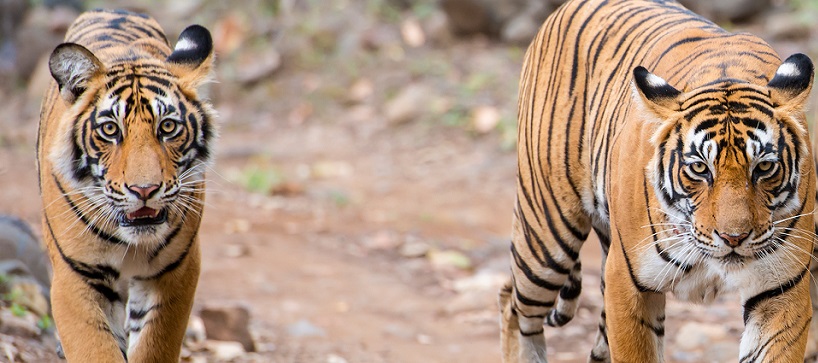Bandhavgarh National Park, situated in the Umaria district of Madhya Pradesh, India, not only stands as a haven for wildlife enthusiasts but also plays a pivotal role in the broader spectrum of wildlife protection. The safari experience at Bandhavgarh goes beyond the thrill of spotting majestic creatures; it actively contributes to conservation efforts, ensuring the survival of endangered species and the preservation of their natural habitats.
Eco-Tourism Initiatives:
Bandhavgarh Safari operates on the principles of eco-tourism, emphasizing responsible and sustainable practices. The safari management actively promotes awareness about the delicate balance between human activities and the needs of the wildlife. Visitors are educated about the importance of minimizing their ecological footprint, respecting wildlife habitats, and adhering to ethical guidelines during the safari experience.
Revenue Generation for Conservation:
The revenue generated through tourism, including safari permits and accommodations, plays a crucial role in funding various conservation initiatives within and around Bandhavgarh National Park. These funds are utilized for anti-poaching efforts, habitat restoration, community engagement programs, and the overall well-being of the wildlife residing in the park. By participating in the safari experience, visitors directly contribute to these conservation projects, ensuring the long-term protection of the region's biodiversity.
Anti-Poaching Measures:
Bandhavgarh has been a success story in terms of tiger conservation, and the park's management employs robust anti-poaching measures to combat the illegal wildlife trade. The presence of trained forest guards, use of advanced surveillance technology, and collaboration with law enforcement agencies contribute to a secure environment for the park's inhabitants. Revenue generated from safari tourism aids in the continual improvement of these anti-poaching efforts, safeguarding the critically endangered Bengal tigers and other wildlife species.
Research and Monitoring:
Bandhavgarh serves as a living laboratory for researchers and wildlife biologists. The information gathered from safari sightings, camera traps, and research initiatives helps in monitoring the health and behavior of the park's wildlife. This data is invaluable for developing effective conservation strategies and understanding the ecological dynamics of the region. Safari experiences, therefore, become a direct means of supporting research endeavors, ultimately benefiting the broader field of wildlife conservation.
Community Engagement and Livelihoods:
Sustainable wildlife conservation is not just about protecting animals but also involves the communities residing in and around the protected areas. Bandhavgarh Safari contributes to community engagement programs that aim to involve local residents in conservation efforts. By providing alternative livelihood options, education, and healthcare support, the safari experience contributes to building a harmonious relationship between the local community and the wildlife, ensuring a shared commitment to protection.
In conclusion,
The Bandhavgarh Safari transcends the boundaries of a mere tourist attraction; it serves as a cornerstone for wildlife protection. The synergy between responsible tourism, revenue generation, anti-poaching measures, research initiatives, and community engagement creates a holistic approach to conservation. By participating in a Bandhavgarh Safari, visitors become active contributors to the ongoing efforts aimed at preserving the rich biodiversity of the region and securing a future where humans and wildlife coexist in harmony. For Booking Bandhavgarh Safari Online Visit our website.

